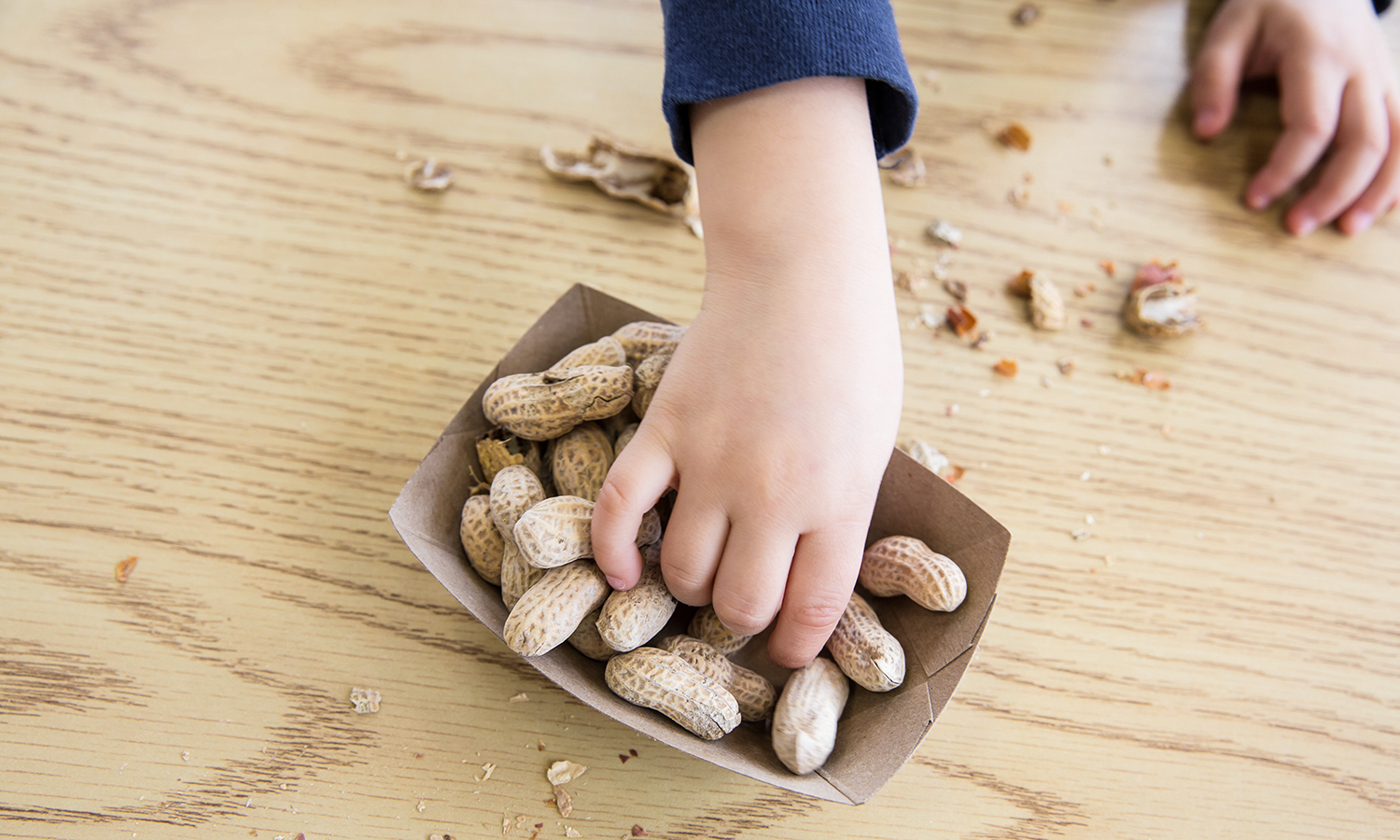Like what you see?
Sign up to receive more free parenting advice.
Thank you for subscribing to our newsletter!
Child Development

Credit: iStock.com/michellegibson
Feeding peanut products to a baby was traditionally an area of trepidation for parents. But a study from the Murdoch Children’s Research Institute has found that since new guidelines were introduced in 2016, the number of parents feeding their babies peanut products has tripled.
Australian guidelines on feeding infants peanuts and other potentially allergenic foods are set by The Australasian Society of Clinical Immunology and Allergy.
In 2016 the guidelines changed to recommend introducing peanuts before a child turned one, in clear contrast with earlier advice which recommended parents wait till after their child’s first birthday.
The reason? Allergies. It was previously thought that holding off introducing peanuts was the safer option, however current research shows feeding these products to children at a younger age can potentially prevent peanut allergy in children, and that delaying the introduction of peanuts didn’t prevent the food allergy.
Generally when guidelines like this are changed, there’s a lag of up to three years in broad behavioural change.
In part, this is because health providers need time to take on the new information and pass it on to parents. However, a study by experts from Melbourne’s Murdoch Children’s Research Institute has found that the take up of this new advice happened surprisingly quickly in this case.
“It’s quite an easy change to make,” says MCRI’s Professor Victoria Soriano.
She notes that parents likely jumped on the new guidelines because although a 2015 study provided the first definitive evidence (via a landmark randomised control trial) that feeding peanuts earlier could prevent peanut allergy, earlier data had suggested this may be the case.
The study, led by MCRI’s Dr Jennifer Koplin, surveyed Melbourne-based parents of 860 infants and was published in The Journal of Allergy and Clinical Immunology.
It found that 89 per cent of these parents had fed their children peanut products by twelve months, with six months being the median age for the taste test. It was a significant three-fold increase on an earlier study by MCRI undertaken before the guidelines were changed: the Institute’s 2007-2011 HealthNuts study found just 28.4 per cent of parents were introducing peanuts before their child’s first birthday.
Our ultimate goal is to prevent food allergies so children don’t have to live with them…these are allergies that don’t usually go away, so if we can prevent it when they are little they don’t need to go through those difficulties.Professor Victoria Soriano
Stay up to date with the latest news and articles from First Five Years
Thank you for subscribing to our newsletter!
How to introduce potentially allergenic foods
Australian guidelines recommend introducing solid food to babies at around six months (although not before four months) and to introduce all sorts of foods from this age, ensuring that allergenic foods like peanuts or eggs are given before twelve months.
Once is not enough; foods must be given repeatedly to have an impact.
“It’s thought that the repetitive introduction makes the child’s body accustomed to the food, so that they don’t have an allergic reaction,” says Professor Soriano.
“There always will be a subset of the population that, no matter what you do, because of genetic factors or other risk factors, will get food allergies. This isn’t one hundred per cent fool proof, but it’s good advice,” she says.
Parents are recommended to introduce peanuts in paste form (whole peanuts are a choking hazard for babies) at least twice a week.
“It’s not known what happens if there’s a long break: I would just recommend parents introduce it by adding it into other foods like smoothies, yoghurt or other foods so they can include them more regularly,” says Professor Soriano.
As for those who are nervous about the process, Professor Soriano stresses for most parents, it’s important to remember the big picture.
“It’s a normal, natural thing for an infant to eat food. For parents who have concerns about it, there are methods to do it slowly and more cautiously,” she says, noting that the ASCIA website offers this type of guidance for parents.
The mystery of food allergies
In many ways, our understanding of how and why food allergies occur is still in its infancy.
“It’s thought that if you have an egg allergy when you are little you are more likely to have other allergies. But there are so many variations; it’s quite a complex linkage,” Professor Soriano says.
Scientists believe there is a window in the child’s life when their body is happy to receive new foods and accept new food as safe.
“We believe if infants are introduced to these foods in that window they potentially maintain tolerance to them."
How the data will help
Food allergies affect up to one in ten Australian children, so researchers are interested to see if a change in guidelines helps the overall prevalence of peanut allergies in Australia’s children.
While the study found the large shift towards earlier peanut introduction was “striking”, it’s too early to yet know what impact this will have at a population level.
Researchers’ next step will be to look at what impact the new guidelines have had on the population in Melbourne. They are currently conducting a study asking parents of young children to participate and provide information about their children’s allergy status and risk factors and timing of introducing allergenic foods.
“When you get big enough numbers you can look at the trends to see if there’s any sort of association between the two factors. We know there is definitely a link at a controlled-trial level that introducing both egg and peanut earlier has been shown to reduce egg or peanut allergy. We now want to see how that is affecting the general population in a less controlled environment,” Professor Soriano says.
While the data, which will be available in early 2020, will tell the full story, the hope is that results will show fewer children are being impacted by peanut or egg allergies.
“Our ultimate goal is to prevent food allergies so children don’t have to live with them…these are allergies that don’t usually go away, so if we can prevent it when they are little they don’t need to go through those difficulties,” Professor Soriano says.






